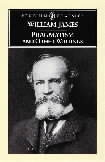The Romantics: A Novel
14.00 JOD
Please allow 2 – 5 weeks for delivery of this item
Add to Gift RegistryDescription
Pankaj Mishra is one of the most promising talents of his generation, and this stunning, universally praised novel of self-discovery heralds a remarkable career.The young Brahman Samar has come to the holy city of Benares to complete his education and take the civil service exam that will determine his future. But in this city redolent of timeworn customs, where pilgrims bathe in the sacred Ganges and breathe in smoke from burning ghats along the shore, Samar is offered entirely different perspectives on his country. Miss West and her circle, indifferent to the reality around them, represent those drawn to India as a respite from the material world. And Rajesh, a sometimes violent, sometimes mystical leader of student malcontents, presents a more jaundiced view. More than merely illustrating the clash of cultures, Mishra presents the universal truth that our desire for the other is our most painful joy.
Additional information
| Weight | 0.23 kg |
|---|---|
| Dimensions | 1.48 × 12.96 × 20.32 cm |
| Format | |
| language1 | |
| Pages | 288 |
| Publisher | |
| Year Published | 2001-2-20 |
| Imprint | |
| Publication City/Country | USA |
| ISBN 10 | 0385720807 |
| About The Author | Pankaj Mishra was born in 1969. He is a regular contributor to The New York Review of Books, the New Statesman, and The Times Literary Supplement, as well as several Indian publications. He is currently editing an anthology of Indian writing. He divides his time between New Delhi and Simla. |
| Excerpt From Book | Chapter 11When I first came to Benares in the severe winter of 1989 I stayed in acrumbling riverside house. It is not the kind of place you can easily findanymore. Cut-price "Guest Houses" for Japanese tourists and German pastryshops now line the riverfront; touts at the railway station and airport arelikely to lead you to the modern concrete-and-glass hotels in the newerparts of the city. The new middle-class prosperity of India has at lastcome to Benares. This holiest of pilgrimage sites that Hindus for millenniahave visited in order to attain liberation from the cycle of rebirths hasgrown into a noisy little commercial town.This is as it should be; one can't feel too sad about such changes.Benares-destroyed and rebuilt so many times during centuries of Muslim andBritish rule-is, the Hindus say, the abode of Shiva, the god of perpetualcreation and destruction. The world constantly renews itself, and when youlook at it that way, regret and nostalgia seem equally futile.The past does live on, in people as well as cities. I have only to lookback on that winter in Benares to realize how hard it is to let go of it.It was pure luck that I should ask the pujari at the riverside temple aboutcheap places to rent at the very moment Panditji came in with his offeringof crushed withered marigolds. Panditji, a tiny, frail, courteous oldmusician, overheard our conversation. He saw me as a fellow Brahmin who hadfallen on hard times and he offered to help. With his oversized rubberflip-flops slapping loudly against the cobblestone paving, he led methrough narrow winding alleys, past large-eyed cows and innumerable littleshrines to Hanuman, to his house. We went up steep stairs, past twoidentical enclosed courtyards on the ground and first floors, on whichopened a series of dark bare rooms, to a tiny room on the roof. Panditji,his white wrinkled hands fumbling with the large padlock and the evenlarger bolt, unlocked the door. I saw: sunlight streaming in through asmall iron-barred window that looked out onto a temple courtyard;whitewashed walls, a cot with bare wooden boards, a writing table andstraight-backed wicker chair; fluffs of dust on the rough stone floor. Theroom, Panditji said, could be mine for just Rs. 150, what he called"Indian" rent, meals not included.Oddly, I hardly ever spoke to Panditji again. He spent his days in a hazeof opium under a pile of coarse wool blankets. In the evenings he wouldawaken sufficiently to give sitar lessons to American and Europeanstudents-all identical with their long hair, tie-dyed shirts, and stubbly,emaciated, sunken-eyed look. I saw him occasionally, wearing a muslin dhotiand white Gandhi cap, carrying a pail of milk back to the house from thecorner sweetshop, the skin on his exposed bony legs shriveled and slack,his sacred thread dangling from under his woolen vest. We nodded at eachother, but never exchanged more than a word or two. All my dealings wereconfined to his arthritic wife, Mrs. Pandey, who lived in one of the darkbare rooms on the first floor with her family retainer, Shyam; she had longcut off all contact with her husband and claimed not to have gonedownstairs for over fifteen years. The tenants lived in two smallbedsitters on the roof, and I shared the view of the river, the sandyexpanses beyond it, and the brooding city toward the north, the loomingcupolas and minarets, the decaying palaces and pillared pavilions, withMiss West.Miss West (as she was called by the local shopkeepers-it was weeks laterthat I discovered her first name was Diana) was English, middle-aged, and,from what I could tell, well-to-do-she presumably paid the "foreign" rentfor her room. The perception that Miss West with her clean high forehead,hazel eyes, slender neck, and straight blond hair, now flecked with gray,had been very beautiful at one time came to me only later, when I was moreaccustomed to the physiognomies of white Europeans. Her presence inBenares, in a tiny room on the roof, where she appeared to do nothing allday except read and listen to Western classical music, was a mystery to me.I thought it had to do with some great sadness in her past. It was a largejudgment to make on someone I didn't know at all. But theimpression-seemingly confirmed by the serene melancholy she gave off as shesat on the roof, a Pashmina shawl draped around her shoulders, and gazed atthe river for long hours-this impression came out of the mood I lived withfor those first few exceptionally cold days in Benares, the thick mistsrising from the river and shrouding the city in gray, the once-hecticbathing ghats now desolate, the sad-sweet old film songs from an unseentransistor radio in the neighborhood reaching me weakened and diffused as Ilay huddled under multiple quilts in my chilly damp room, trying to readThe World as Will and Idea.It was the kind of big book that idleness made attractive. So many longhours of wisdom and knowledge it promised! It was why I had come to Benaresafter three years in the nearby provincial town of Allahabad, where I hadbeen an undergraduate student at a decaying old university. In Benares, Iwanted to read, and do as little as possible besides that. The city, itsantiquity, its special pleasures, held little attraction for me.But the weather made for a special kind of gloom. It brought back memoriesof an earlier visit to Benares. I was seventeen years old then. Hastilysummoned from Allahabad, I had come with my father to perform the lastrites for my mother. It was then I'd had, tinged with my confused grief andsense of loss, my first impression of the city. The thick river miststhrough which we rowed one cold early morning to scatter my mother's ashes;the priest with the tonsured head reciting Sanskrit mantras in a boomingvoice and waving incense sticks over the rose petals bobbing on theash-smeared water; the temple bells and conches ringing out in unison fromthe great mass of the city-these were the memories, almost phantasmagoric,I had of that visit, and they kept coming back to me in those first fewdays in Benares.I read slowly but understood little of The World as Will and Idea.Nevertheless, I soldiered on. Other big books awaited their turn in thesmall octagonal niches in the whitewashed walls of my room where, when Ifirst arrived, vermilion-spattered clay idols of Krishna and Vishnu hadstood; and frequently, in the middle of reading, I would look up and let myeyes wander over the thick multicolored spines and grow impatient at theslow progress I was making, at the long interval that separated me fromthose other books./ / /Then the mists lifted and a succession of cloudless days followed. Theriver gleamed and glinted in the midafternoon sun. Bright red and yellowkites hung high in the clean blue sky. Children appeared on the bathingghats; the uneven cobblestone steps came to be chalk-marked with hopscotchrectangles; scrawny drug pushers lurked on temple porches where chessplayers sat hunched over tattered cardboards; pilgrims dressed andundressed all day long in a slowly turning kaleidoscope of Indian colors:the South Indians in their purple Kanjeevaram silk saris, the visitors fromRajasthan unwinding the spools of yellow and crimson turbans, the widowsfrom Bengal in their austere white cotton. In the evenings, the funeralpyres in the distant north of the city were like glowworms in the gatheringdusk.I abandoned Schopenhauer and started on Turgenev's Torrents of Spring. MissWest, who put on the first of the flowery summer dresses I was to see herin, said, "What wonderful weather! We must celebrate, we must have aparty." This sudden familiarity puzzled me. Did the "we" include me? I hadexchanged only a few words with her. One of the very first things she saidto me was: "Where did you learn to speak such charming English?" I hadn'tknown what to make of this remark. Was she being complimentary orcondescending? One sunny morning on the roof, as she lay in her saggingcharpoy, her legs partially exposed in a way I thought immodest, her ovalsunglass frames accentuating the whiteness of her skin, a mysterioushaunting melody floating out of her room-Beethoven's Archduke Trio, I latercame to know-one morning, she had asked me about my undergraduate years inAllahabad. "You see, Rudyard Kipling wrote for a newspaper published fromAllahabad-how do you pronounce it?" she said. "But tell me: did you enjoyyourself there? And why did you choose Allahabad of all places?" She spokewith a sharp emphasis, in short rapid sentences, her voice demanding asimilarly precise and brief response.There wasn't much I could tell her. These things couldn't be explained.Just as my father, when he announced to me his decision to move to anashram in Pondicherry after my mother's death, hadn't needed to explainanything. His decision was in accordance with an old rite of passage: thewithdrawal from the active world in late middle age, the retreat into theself. We instinctively understood these ancestral obligations; we rarelyever questioned them and never asked for explanations. It had been so when,after an indifferent education in a number of nondescript small-townschools across India, the time came for me to go to university. Threegenerations of my mother's family had gone to the university in Allahabad,a sister city of Benares, and it was to Allahabad that I had gone.On the face of it, it wasn't a bad choice. Set up in 1887, the universitywas once known as the Oxford of the East. To seekers of jobs and careers inthe colonial dispensation it offered an attractive pedigree. Butunbeknownst to those of us who still set store by its old reputation, theuniversity had suffered a steep decline in the years since independence.Anarchy reigned behind the still-impressive façade of its domes and towers.Academic sessions were in total disarray: examinations due in April weremore likely to be held in December, if at all. Everyone was locked inconflict: students against students, teachers against teachers, teachersagainst students, students against the management, teachers against themanagement, students against the police. Often these conflicts turnedviolent. Students shot at each other on the streets with country-maderevolvers. Late at night, you were hurled out of your sleep by the sound ofa crude bomb going off somewhere in the vicinity. In the morning, you readthe details in the crime pages of the local Hindi papers: politicalrivalry, ambush, instant death, investigation ordered, no arrests so far.Miss West appeared shocked by the few things I told her. "Howextraordinary!" she exclaimed. "How absolutely awful! You must have beenvery brave to have survived all that." Then, in a calmer tone, she added,"You know I never went to university. My father belonged to a generationwhere people didn't bother with educating their daughters."I thought this odd. Prejudices against female education were a feature ofpoor societies; I didn't associate them with England. Could it be that herfather couldn't afford to send her to university? I wasn't sure, and didn'tthink it was the sort of question I could ask. Then she mentioned the partyand confused me further.I was nineteen years old but hadn't ever been to a "party." The word itselfbrought to mind noisy, half-naked revelers; it suggested the kind of emptyfrivolity and moral laxity I had been brought up to disapprove. My view ofMiss West altered; I now saw her as an organizer of parties.At the same time I felt myself corralled into her preparations. I boughtthe welcoming garlands for the musicians who Miss West said would performafter dinner; I went out to the bazaar and looked at the various kinds ofBengali sweets available; and, overcoming an innate aversion to intoxicantsand stimulants, I even arranged for the bhang-flavored thandai that I'dheard was the staple item at such occasions in Benares.Miss West fretted over her guest list. After five years in the city, sheknew a great many people. In the end, she invited only a handful of them."Can't possibly have them all over. It's frightfully small, this place,"she said, her pencil stabbing at the list of scribbled names. "Mrs. Pandeymight object to that many people trooping in and out of her house."Mrs. Pandey and Shyam, her retainer, did look askance at our preparations.Sitting close together on low wooden stools, they would look up from abrass plate of finely chopped tomatoes, ginger, and garlic to exchangemuttered remarks as people came up and down the stairs carrying logs ofrolled-up dhurries and bolsters. The general drift of these remarks-some ofwhich I overheard-was that Miss West's party was a poor approximation ofsimilar events in their own past. One evening before the party when I hadgone to eat with them-as I did each alternate day, sitting cross-legged onthe floor in their dark, sooty windowless kitchen, awkwardly inhaling smokefrom the chulha fire over which Shyam rotated slowly inflating chapatiswith a pair of rusty iron tongs-Mrs. Pandey spoke pointedly of the splendorof the musical soirees the Maharajah of Benares used to hold at one time.Her own father, a famous sitar player, she said, was an exalted guest atsuch gatherings. What about Panditji? I asked, referring to her husbanddownstairs. She looked scornfully at me. What about him? she seemed to say.I was soon to know that this was an obsessive theme with her: how thegrandeur of her family connections had been fatally undermined by hermarriage to Panditji, a penniless musician who, when he first arrived ather father's mansion as a student, Mrs. Pandey would claim, owned nothingother than the clothes he had on his undernourished body./ / /On the evening of the party, Mrs. Pandey ate early and then disappearedinto her room. Panditji was as usual oblivious to the goings-on in hishouse. Only Shyam showed some interest. He lived the neutered life of afeudal retainer, aware of nothing except his mistress's wishes, and herarely spoke a word apart from a clichéd proverb in Hindi he would repeat,without regard to context, as he fanned the chulha fire: "Greed," he wouldmumble, "is the biggest evil. It eats away man, destroys families, sundersson from parents, husband from wife . . ." This evening, he squatted on thefloor, scrubbing brass dishes with coal ash and water, his jaw jutting outas he slowly chewed on his tobacco, and stared disconcertingly at theguests as they walked up to the roof. |
Only logged in customers who have purchased this product may leave a review.






Reviews
There are no reviews yet.